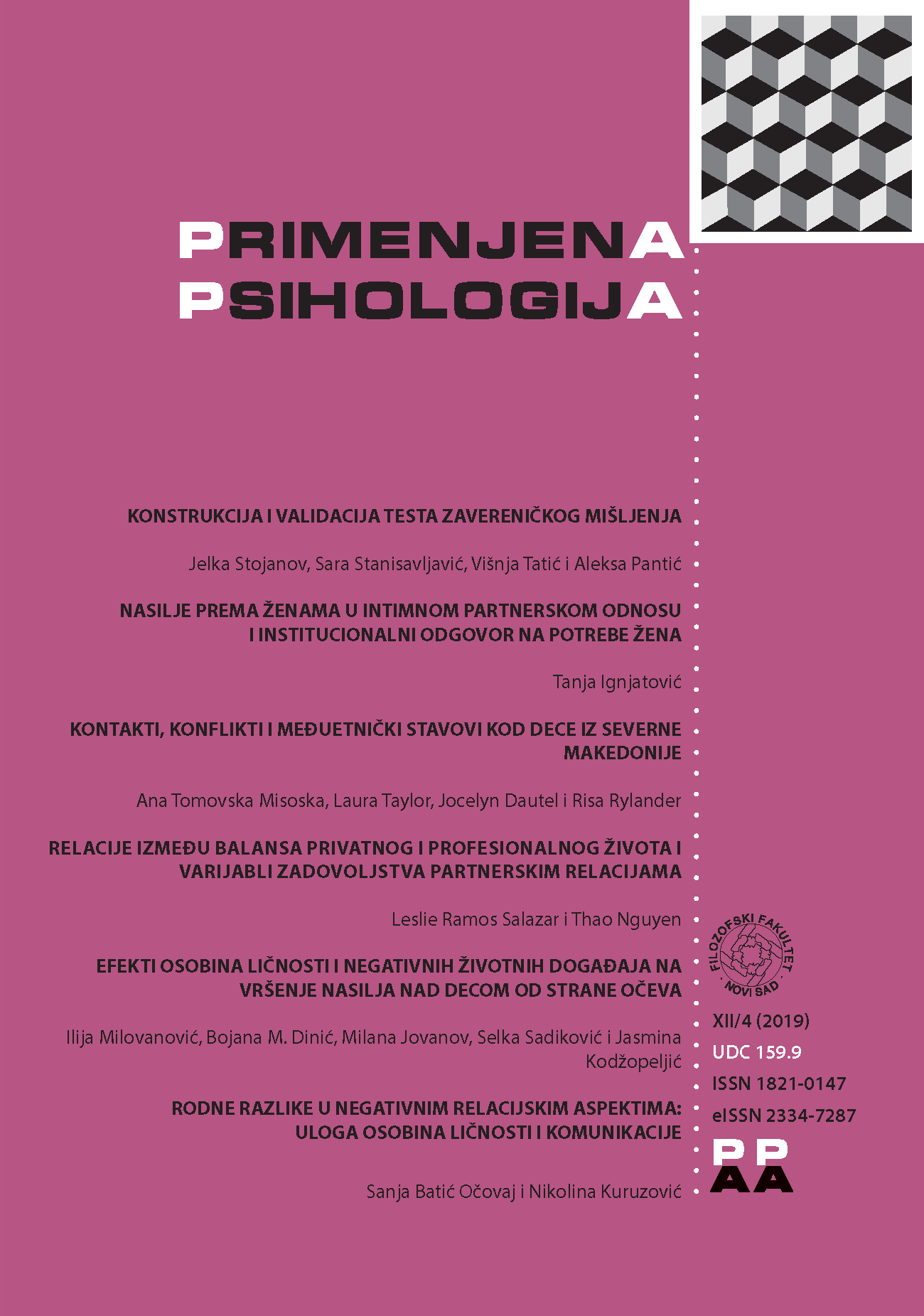CONSPIRACY THINKING INVENTORY (CTI) – CONSTRUCTION AND VALIDATION STUDY
DOI:
https://doi.org/10.19090/pp.2019.4.363-383Keywords:
conspiracy theories, Conspiracy Thinking Inventory, construction, validationAbstract
Conspiracy thinking is defined as a form of reasoning about events and situations of personal, social, and historical significance, where “conspiracies” are a dominant factor. This research aims to construct and validate Conspiracy Thinking Inventory (CTI), which purpose is to measure general propensity for conspiracy thinking, rather than beliefs in specific conspiracy theories. Study 1 (N = 356), a preliminary version of CTI consisting of 93 items, was constructed and subsequently shortened to 23 items arranged in 4 facets: Control of Information, Government Malfeasance, Threat towards One’s Own Country, Threat towards Personal Well-being. In Study 2 (N = 180), factor structure and validity of CTI were tested, resulting in a two-factor solution: Conspiracy Thinking Aimed at Health and Well-being (CT), and Attitudes towards the Government Institutions and Representatives (AtGI). The pattern of correlations between CT and relevant constructs confirmed its convergent validity, and CT was also shown to be a good predictor of beliefs in specific conspiracy theories. Previously confirmed convergent and criterion validity and its psychometric characteristics show that CTI may be used as an indicator of conspiracy thinking. Nevertheless, divergent validity has yet to be confirmed by using other constructs (e.g., personality traits). Despite not having been foreseen, extraction of the second factor might be the consequence of using items with predominantly political content. This factor was not correlated with any external criteria which indicate that it does not reflect conspiracy thinking.







